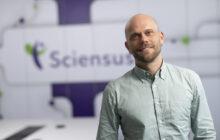
Lack of real-world data slowing your orphan drug’s success?
Learn how real-world observational studies can fill the gaps left by clinical trials and boost your chances of success
When it comes to the development and launch of orphan drugs, the natural scarcity of clinical trial data can present a formidable barrier for biotech companies to overcome. As such, the potential impact of innovative new treatments is often restricted by this data drought. In this article, we explore how gathering real-world observational data can help drive your product forward in Europe and ensure it reaches its potential.
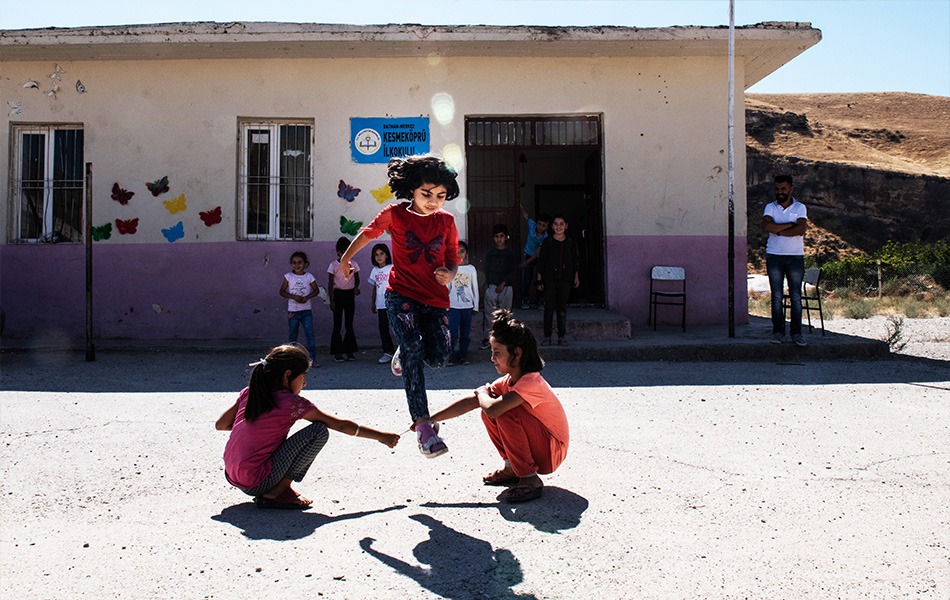
Why clinical trials alone aren’t enough for orphan drugs
All too often biotechs find themselves with an amazing new product ready to launch but know that the clinical trial data doesn’t quite tell the full story. Sound familiar?
For example, trial data shows that the drug is safe and has the potential to make a significant difference in the lives of rare disease patients. However, you’re concerned about how patients will cope with the side effects seen during trials. You have anecdotal evidence that a different dosage pattern to the one used in trials can help patients tolerate the medication much better, but not enough data to be able to change the product’s usage guidelines.
We know that clinical trials for rare disease treatments are difficult to coordinate, with both practical and ethical obstacles to overcome, and so the data they provide is often scarce. Finding enough eligible participants to generate robust and generalizable results can be nearly impossible and so the resulting data is often biased to certain population groups and limited in its breadth and depth.
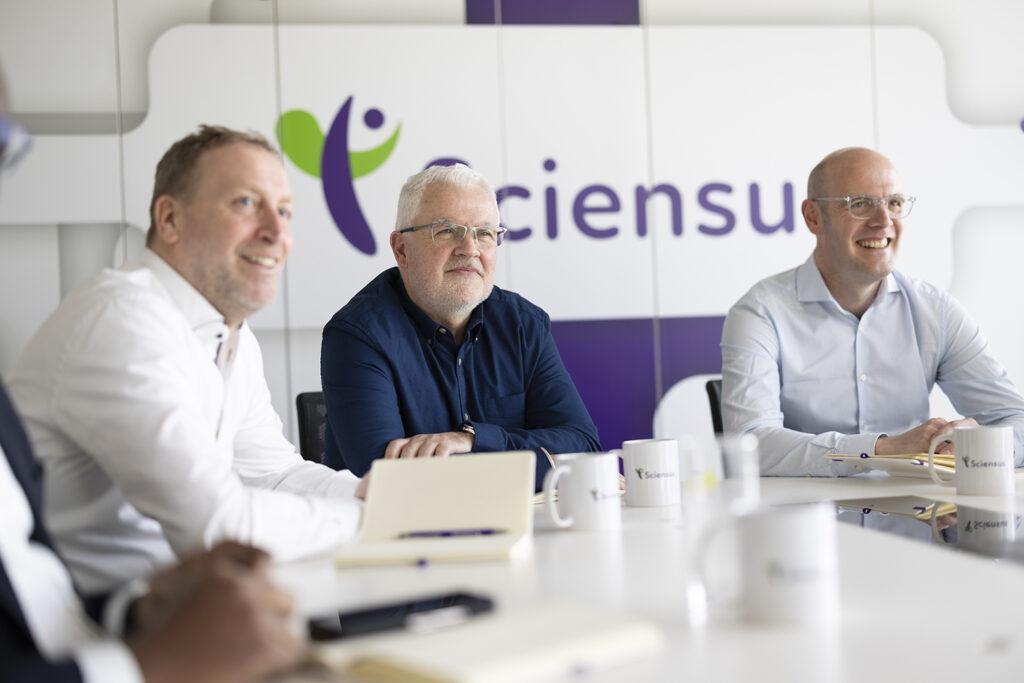
How Sciensus helps you develop a patient-centric solution
Our skilled healthcare professionals are highly trained on the disease in question, the lived experience of patients, and your product. We carefully tailor our PSPs to meet the specific needs of patients, for example, offering awareness-building initiatives at a child’s school to ensure they receive the support they need to stay in school and thrive.
With 30 years of experience, we have a deep understanding of European regulatory frameworks and can ensure your study is approved in as many countries as required.
Interested in finding out more?

The real-world data gap: a barrier to drug access & adoption
A lack of scalable data can have an impact on so many aspects of a drug’s commercial success in Europe, including licensing applications, pricing and reimbursement negotiations, and patient and clinician perceptions of its impact.
This is where we believe real-world data, collected through non-interventional observational studies, can help. Observing and recording how a product performs in the real world, with the wider subsection of patients that brings, can be extremely valuable. It can help manufacturers gain a deeper understanding and gather compelling data about the product’s performance, any necessary regimen adjustments, and its potential impact outside of the controlled clinical setting.
Running observational studies in Europe
So, why don’t we see more observational studies taking place for orphan and rare disease drug launches in Europe?
Largely it is because designing and running studies can be complex due to the many and varied rules and regulations across the European member states. For example, many countries will require approval from their national research ethics committee or, at a minimum, registration of the study with the relevant authority.
That said, conducting an observational study, whether as part of an early access program or post-marketing approval, can be key to ensuring your product’s success in Europe. Observational studies are the perfect opportunity to gather real-world data on your product’s performance, including its safety profile, side effects, and patient adherence levels.
In some cases, the European Medicines Agency (EMA) may impose an observational safety study, or PASS, making it a critical step in your European launch journey.
Including observational studies as part of a patient-centric approach
Most orphan drugs can’t offer patients a cure, but instead relief from debilitating symptoms and a better quality of life. Many of these patients will have other unmet needs. That’s why the most patient-centric organizations provide supportive activities, in the form of patient support programs (PSPs), alongside their orphan drugs.
PSPs enable biotechs to help patients and their carers develop knowledge and skills that support them to proactively and independently manage their condition and treatment. PSPs are carefully designed to improve patient wellbeing and long-term health outcomes and often include:
- Helping patients and carers deal effectively with the symptoms of the disease
- Supporting patients and carers to manage treatment, its side effects, and dosage more effectively
- Providing practical advice and psychological support to patients and their families.
Offering an enhanced level of care, PSPs can help patients adhere more closely to their treatment plans, navigate side effects, and maximize the potential benefits.
When observational studies include supporting activities like those typically found in a Patient Support Program (PSP), it benefits both patients and pharmaceutical companies. Patients achieve better outcomes, stay more engaged, and higher-quality data is collected.
How real-world data strengthens patient-centric rare disease care
At Sciensus, we offer a full solution to both observational data collection and patient support activities. We are a leading provider of PSPs, delivered by highly qualified healthcare professionals, across the whole of Europe.
We use our in-depth knowledge and clinical expertise to understand your needs, research the condition your product can treat, and highlight any areas of unmet need. From this, we can design a study protocol for your product conduct the study, but also provide digitally-enabled supporting activities, thus supporting patients and their families and collecting data on side effects, and the treatment’s impact, at the same time.
Explore more expert insights

Blogs
EMA orphan drug designation
Gaining orphan drug designation from the European Medicines Agency (EMA) is essential for any company seeking to market a new…
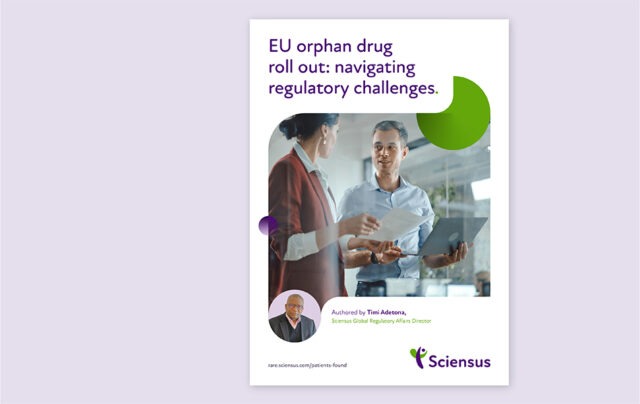
Thought Leadership
EU orphan drug roll out: navigating regulatory challenges
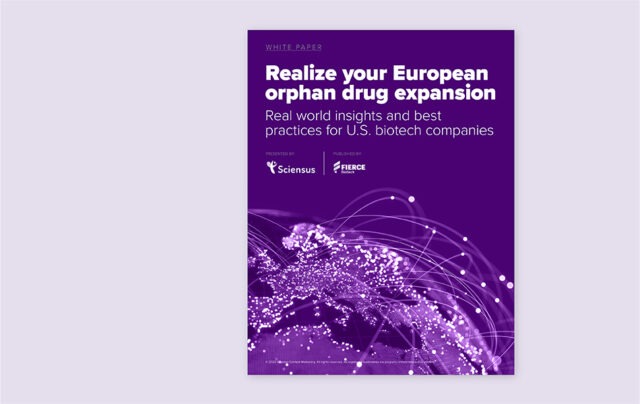
Thought Leadership
Realise your European orphan drug expansion

